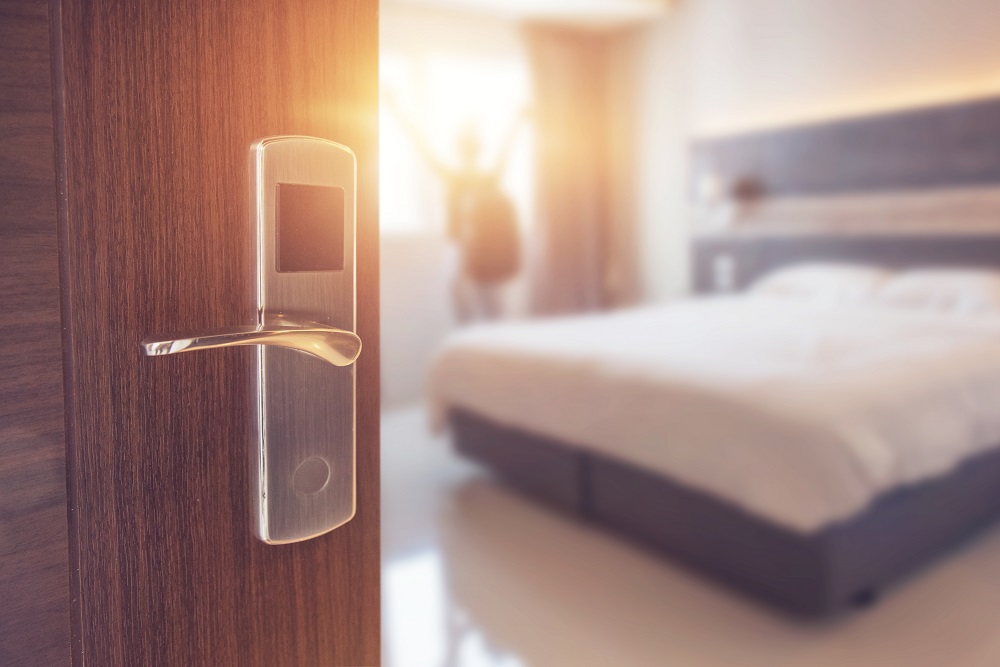As this pandemic continues to wreak havoc on the hospitality industry, hotels have been left scrambling to keep their businesses afloat amidst these challenging times. With that being said, the damage that has, and continues to affect hotels has truly been substantial. From layoffs to complete closures, the entire hospitality and travel industry has been impacted in one way or another. However, with recent positive signs combined with a greater understanding of the Coronavirus and continued efforts to work towards a solution, there are reasons for slight optimism. Regardless of when things turn around, at some point this will end, and it is essential that hotels are ready to get back up and running at full speed once this pandemic subsides. To help hotels prepare themselves for the eventual turnaround, we have put together the guide to preparing your hotel for success after the Coronavirus.
1. Make sure everyone knows you’re back in business.
While this might seem like common sense, the fact is that many hotels have made changes to their hours of operation, have closed altogether, or are running in a limited fashion. Whether a hotel stopped all marketing activity, such as social media and paid advertising, or updated their hours/marked their property as ‘temporarily closed’, all of these must be either restarted or corrected to ensure guests know your property is back up and running. For example, if your hotel is listed under Google My Business and Bing Places, it is imperative that you update any information that was changed during the pandemic. In addition, if anything was updated on your website that relates to COVID-19, this information should be removed or reverted back to what it was prior to the crisis. This includes any notices that were posted, specific blogs or articles about the Coronavirus, and banners or popups relating to the impact of COVID-19 on your hotel, as any visitors to your website will likely be confused if incorrect or outdated information is still visible.
2. Proactively engage and reach out to guests.
It is often stated that retaining existing customers is typically much easier and more cost effective than acquiring new customers. With that being said, it is integral that hotels reach out to their existing client base and let them know their hotel is either operating at full capacity again or have re-opened. Preferably, to reach as many guests as possible, a combination of email and social media communication efforts will drastically increase awareness that your hotel is open for business. With regards to the actual content and wording of these emails and social posts, make sure that the guest is prioritized and reassure them that your hotel is both safe and committed to hosting them when they are ready to return. In doing so, guests will not only be reminded about your property as a possible hotel option, but they will also feel a sense of comfort that your hotel took the time to reach out and ease their concerns. If there were guests that had previously postponed or rescheduled their stay, develop a plan that possibly includes incentives or upgrades to quickly entice them back to your property. Since they are already committed to returning to your hotel for a future stay, these guests would represent a great opportunity to quickly increase occupancy rates.
3. Ensure you are ready for online bookings.
If this pandemic has taught us anything, it has been the value and power of online connectivity. With many people working from home, companies using their website to sell gift cards, services, and products to keep their businesses active, and the ability to connect with loved ones through video calling, all of these examples demonstrate the benefits and importance of being connected online. With that being said, it is reasonable to assume that post-Coronavirus there will likely be even greater demand for both online direct bookings and reservations through online travel agents (OTA’s). While some hotels have software that connects to the OTA’s, those that do not will be more susceptible to a continued decline in reservations as their visibility will be significantly below the competition. Leveraging property management software with a built-in central reservation system, such as Chorum CRS, can be a huge difference maker in adjusting to life once the pandemic has ended. Not only will your hotel be seamlessly connected to all major OTA’s and GDS’s, but you will also be able to manage rates, inventory, and reservations automatically, helping your hotel maximize both occupancy and revenue once things do turn around. By ensuring your property has the right software in place to be successful, you can greatly increase your hotel’s searchability and boost bookings quickly.
4. Bring back hotel staff early to avoid any setbacks.
There is likely to be a period where things slowly and gradually work towards returning to normal, and this is the perfect opportunity to start bringing back essential staff to operate your hotel. Ideally, staff should be brought back a few weeks prior to reopening, or when hours are returning to normal, as this will allow them time to get back into the swing of things while helping to get the hotel back up and running to accommodate future guests. A hotel is only as strong as its staff, so it is imperative that your hotel finds out which staff will be returning, as some potentially may move on to other opportunities, and work to get them back as soon as possible once there are definitive signs things will be turning around. Once staff is back in place, briefing them on what the messaging should be to guests, advising them on any new policies in place, and communicating any services still unavailable, will go a long way to ensuring everyone is on the same page and guests receive a consistent message.
5. Build creative marketing strategies to reach guests.
Even if your hotel follows steps 1-4, there is still the risk your hotel may struggle to boost occupancy in the early stages of the post-COVID-19 world. Supplementing the efforts above with creative and time sensitive marketing campaigns can help bridge the gap during this uncertain time. While it’s likely your hotel won’t have disposable income to put towards paid advertising such as Google AdWords or Bing Ads, there are other more cost-effective ways of increasing brand awareness. One option is to develop special offers or promotions that could be sent out via email to guests in your database, providing guests with an incentive to book directly with your hotel. By embracing social media and regularly communicating with your followers, hotels can increase visibility and drive more traffic to their website. As your hotel focuses on recouping lost revenue and increasing occupancy, it is likely that there are other businesses in your area that are in a tougher position that could use the help of the community. By supporting other local businesses on your website and on social media, your hotel can enhance brand credibility and get your name out there in a positive manner. Similar to how hotels were offering up their rooms to COVID-19 patients, supporting other local businesses is a goodwill gesture that can go a long way to increasing your hotel’s reputation.
Hopefully this guide helps position your hotel for success once things turn around and this pandemic is behind all of us. If you are looking for more information on managing your hotel during COVID-19, check out our Hospitality Industry Resources page. From all of us at Jonas Chorum, stay safe and healthy as we work towards rebounding from this crisis.




Great info.
Pingback: COVID-19 Recovery: The Role of Property Management Software - Jonas Chorum